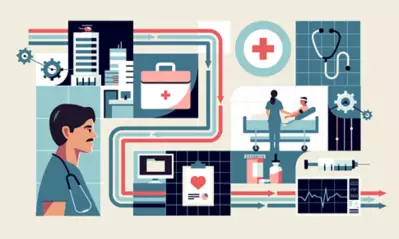Articles > Healthcare > What is health informatics?
What is health informatics?

Written by Michael Feder

Reviewed by Mark Jóhannsson, DHSc, MPH, Dean, College of Health Professions
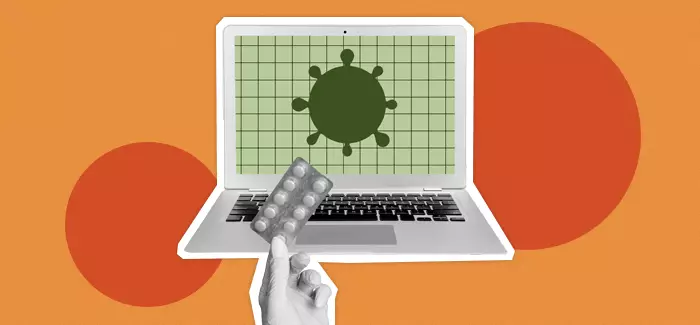
At the intersection of healthcare and information technology is health informatics. Find out about this exciting area of healthcare and how it differs from nursing informatics.
A definition of health informatics
Health informatics is the science that guides the collection, analysis and use of data. Why is this field important? It helps to modernize medical practices, providing doctors, nurses and other practitioners with reliable access to medical records.
Technologies that collect and organize electronic records and data help healthcare facilities and systems run more efficiently and potentially deliver higher-quality care. For example, by gathering and organizing healthcare data into databases and registries, professionals in this field make it possible for clinicians to track outcomes on a larger scale, providing valuable insights that can lead to improvements in treatment. This has the potential to help make healthcare safer, more accessible and more affordable.
Professionals who work in informatics help healthcare systems and providers use and apply these technologies. In this way, they play an important role in delivering better healthcare.
What are the different types of informatics?
Informatics is a field with many different applications in healthcare. Among these are health informatics and nursing informatics. Here’s a closer look at each:
- Health informatics involves using healthcare data to uncover insights that advance innovation, support more effective decision-making and drive efficiencies.
- Nursing informatics refers to collecting and analyzing data and records specifically related to nursing practice.
Bioinformatics, meanwhile, relates to biological data that can be used to further research in pharmacology, genomics, bioengineering and other scientific fields that can impact healthcare and medicine.
UOPX does not prepare students for careers in bioinformatics or pharmacy informatics, but these areas of expertise exist within the field and may occasionally intersect with health or nursing informatics.
What is the difference between health and nursing informatics?
Informatics in nursing and informatics in health have different emphases. In the most basic terms, health informatics is a broad category that encompasses nursing informatics as a subset specialty with a narrower, more specific scope.

What do professionals in health informatics do?
Professionals in this field of informatics help regulate many of the IT processes that improve efficiency in healthcare. They may create and implement IT strategies that make practitioners’ roles more efficient, for example.
The day-to-day responsibilities of this role might vary. One day it might be about educating doctors in a particular department about new platforms that deliver medical records. Another day, it might involve upgrading a healthcare facility’s computer systems or conducting research into technology that directly supports patient care.
Other tasks may involve:
- Managing and maintaining networks and computer systems at a healthcare facility
- Supporting health informatics applications and platforms
- Managing electronic health records and related systems
- Training clinicians and administrators on how to use new technologies
Notably, careers in health informatics are different from careers in health information technology. Unlike informatics, health information technology means using technology to support every aspect of patient care, including patient health data, facility transactions and other print or digital information that helps a facility run. Informatics can include health information technology, but it mainly focuses on using health information to make informed decisions to improve health.
Health informatics professionals need a mix of hard and soft skills. Hard skills include information technology, medical records management, data analysis, and troubleshooting.
Soft skills in this field include public speaking, instruction and interpersonal communication.
You'll find health informatics professionals working with healthcare providers like hospitals, outpatient clinics, nursing homes, or in private medical research facilities or healthcare systems. Third-party IT service businesses and government agencies are also potential employers. Some roles may be remote.
Learn more about education programs for health informatics
Are you interested in learning more about education programs for health informatics jobs? University of Phoenix offers several flexible, online degree programs for working adults.
- Bachelor of Science in Health Management
- Bachelor of Science in Information Technology
- Master of Information Systems
Contact University of Phoenix for more information.

Nye Clinton, PhD, MBA
Associate Dean, College of Health Professions
"As technology becomes a more significant aspect of healthcare, the importance of healthcare informatics has increased in recent years. Health informatics specialists help to reduce errors, improve efficiency and ensure compliance with regulations by ensuring that providers have access to accurate and timely information.”

ABOUT THE AUTHOR
A graduate of Johns Hopkins University and its Writing Seminars program and winner of the Stephen A. Dixon Literary Prize, Michael Feder brings an eye for detail and a passion for research to every article he writes. His academic and professional background includes experience in marketing, content development, script writing and SEO. Today, he works as a multimedia specialist at University of Phoenix where he covers a variety of topics ranging from healthcare to IT.

ABOUT THE REVIEWER
Currently Dean of the College of Business and Information Technology, Kathryn Uhles has served University of Phoenix in a variety of roles since 2006. Prior to joining University of Phoenix, Kathryn taught fifth grade to underprivileged youth in Phoenix.
This article has been vetted by University of Phoenix's editorial advisory committee.
Read more about our editorial process.
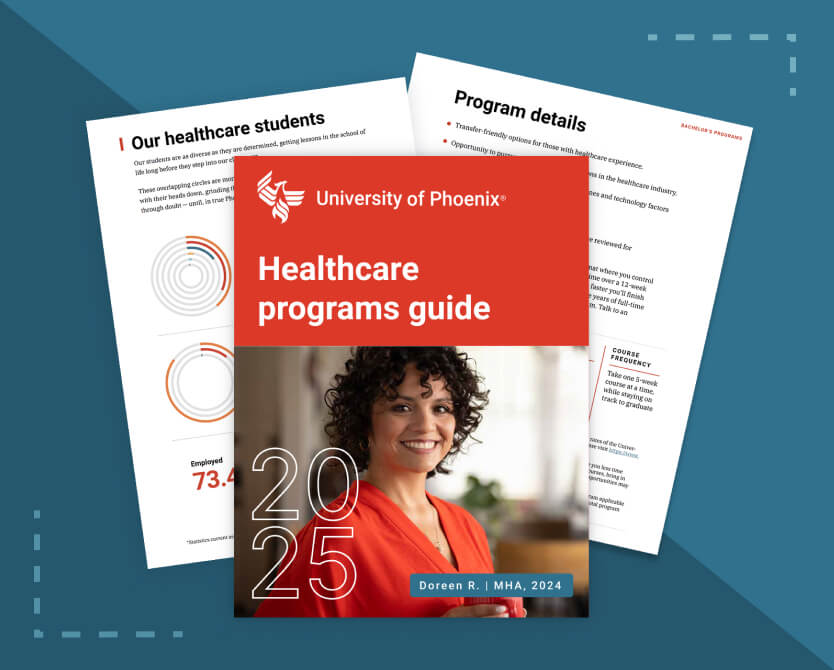

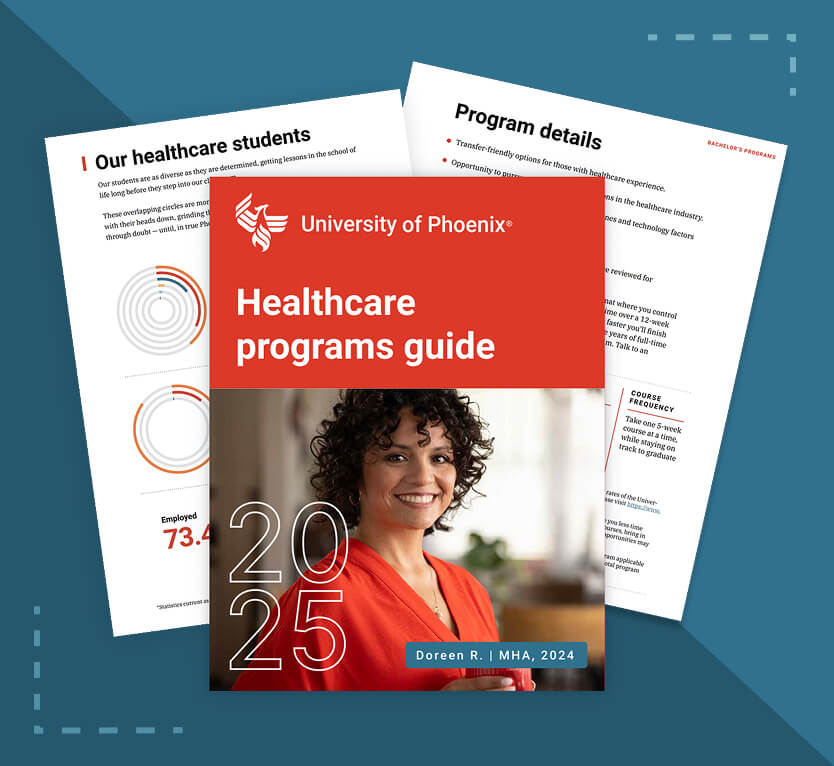
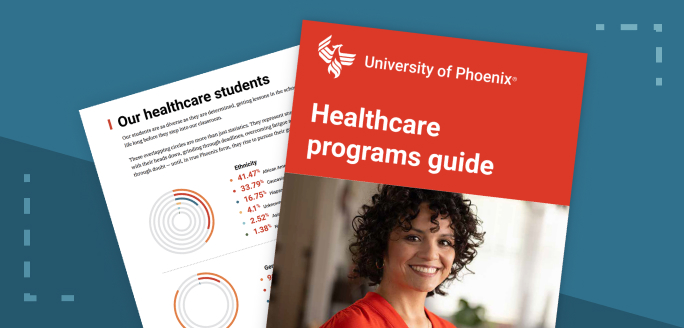
Get your free Healthcare programs guide
Explore our healthcare degrees and certificates - 100% of our programs are aligned to career-relevant skills.
You’re making moves!
This guide is loaded with answers. Download it now or get it from your inbox. Questions? We’re just a call or click away.
Get your free healthcare programs guide. Please enter your first and last name.
You’re making moves!
This guide is loaded with answers. Download it now or get it from your inbox. Questions? We’re just a call or click away.
